Resources
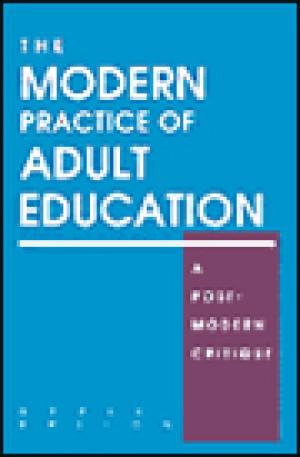
Briton challenges the dominant depoliticized vision of adult education, calling into question the modernist tenets and moral integrity of contemporary adult education practice. By examining his own struggle to escape the confines of modernist thought, the author delivers a succinct yet decisive critique of modern educational practice and challenges educators to reconceptualize their field of endeavor as a postmodern pedagogy of engagement. In refusing to deny its conjectural foundations, to mask its tenuous structure, or to defend its precarious integrity, the book assumes a form that distinguishes it markedly from its modernist counterparts. In favoring commentary over empirical evidence, a multiplicity of voices over a prescriptive narrative, the development of an ethical attitude toward practice over formulaic prescriptions for practice, and inter- over intra-disciplinary sources to substantiate its claims, this work calls into question a whole range of modernist predilections. By repeatedly breaching the narrowly prescribed parameters of adult education's orthodoxy and constantly promoting reflective inquiry, this book reveals how different, yet equally valid, forms of evidence can be drawn upon to develop an ethical postmodern perspective that calls the modern instrumental practice of adult education into question. (From the Publisher)
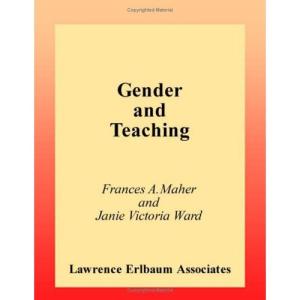
Gender and Teaching provides a vivid, focused, and interactive overview of the important gender issues in education today. This is accomplished through conversations among experts, practitioners, and readers that are informed by representative case studies and by a range of theoretical approaches to the issues. Gender and Teaching is the third volume in the "Reflective Teaching and the Social Conditions of Schooling" series edited by Daniel P. Liston and Kenneth M. Zeichner. It follows the same format as previous volumes in the series. Part I includes four cases dealing with related aspects of gendered experiences in schools (nonsexist elementary school curricula, gender and race implications of special education assignment practices, homophobia in high schools and classrooms, and teaching as a woman's profession), followed by a set of teachers', administrators', and professors' reactions to each case. Part II is an elaboration of four "public arguments"--conservative, liberal, women-centered, and radical multicultural--pertaining to the issues raised in the cases in Part I. These arguments exemplify clusters of orientations, organized around general values rather than hard and fast principles. Part III presents the authors' own interpretations of the issues raised throughout the work and provides activities and topics for reflection and an annotated bibliography of additional resources. Content and Pedagogical Features: *Readers are encouraged throughout to interact with the text. They can respond to each case and compare their responses to those of others in the field. *The cases and discussions that follow help students begin to evolve their own "practical theories"; explore and perhaps modify some of their basic beliefs and assumptions; become acquainted with other points of view; and look further into the connections and intersections of gender with other structural dynamics and practices--those of race, class, and culture--as intrinsic to their explorations into the social conditions of schooling. *The major strands in feminist theory about women and education are presented so that students can analyze the differences among them, come up with positions of their own, and learn to defend them. *Although the authors draw on historical and sociological frameworks that show how women have historically been discriminated against in our schools and in our society, their goal is an education that is equally fair to everyone, boys as well as girls. Gender and Teaching is pertinent for all prospective and practicing teachers at any stage of their training. It can be used in any undergraduate or graduate course that addresses issues of gender and teaching. (From the Publisher)
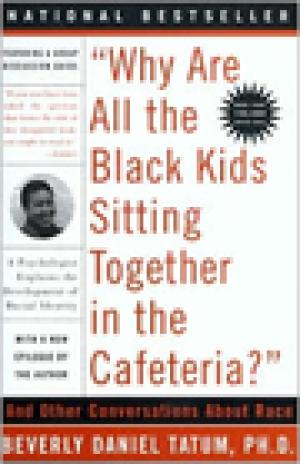
In 'Why Are All the Black Kids Sitting Together in the Cafeteria?' And Other Conversations About Race, Dr. Tatum provides us with a new way of thinking and talking about race through the lens of racial identity. She explains that all of us have a racial identity and must strive to affirm it. For people of color, the development of a constructive racial identity requires being able to recognize and reject the bombardment of negative stereotypes and to embrace a history of resistance and empowerment rather than passive victimization. For Whites, the challenge is to engage in a process of racial identity development which leads to an awareness of White privilege and a determination to actively work against injustice - and this requires the strength to reject a system that rewards them, and to reclaim the legacy of White allies. For many, this is uncharted territory. This book provides a road map for those who want to make the journey and better understand the racial dynamics of their daily lives. Tatum extends her ideas about racial identity development beyond the usual Black-White paradigm to embrace the unique circumstances of Latinos, American Indians, Asians, as well as biracial youth. Also included is a list of resources for further reading as well as a list of books for parents and teachers to recommend to children of all ages. Using real-life examples and the latest research, Tatum presents strong evidence that straight talk about our racial identities - whatever they may be - is essential if we are serious about facilitating communication across racial and ethnic divides. (From the Publisher)
Argues that African Americans, other people of color, and those committed to democracy must counter Anglohegemony by using liberatory and emancipatory pedagogy in learning institutions. Examples of interpretive lenses of "the other" are given, and implications of using these lenses are examined. The importance of educational research is discussed.
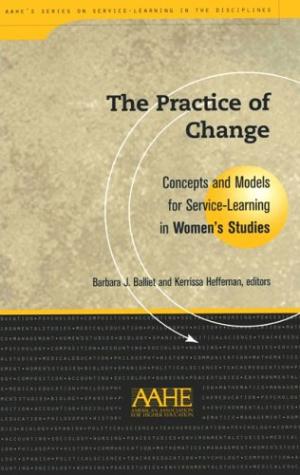
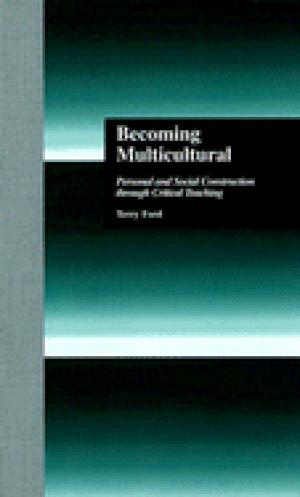
This book argues that becoming multicultural is a process of recursive cycles that must involve confrontational dialogue for change. Multicultural education texts often describe multiculturalism as a process where a person develops competencies of perceiving, evaluating, believing, and doing in multiple ways. However, the dynamic, fluid and changing qualities central to the process of interpersonal interaction often results in mastery of a product, focusing on lists of static features of generalized groups rather than on the individuals who make up those groups. Rather than listing and describing objectified features of cultural groups from a theoretical view, this book details the interactions of 21 ethnically diverse individuals through one classroom experience. First, the personal histories and meanings constructed from lived experience are detailed and analyzed to reveal the ways in which personal identity constructions influence learning events in a singular classroom context. Second, from this analysis, the author develops a conceptual model for the process of becoming multicultural. Then the author applies the model to herself and describes specific ways in which interaction with these individuals has influenced her present teaching strategies for expecting and facilitating confrontational dialogue toward developing education that is multicultural. Specifically the book addresses the questions: 1) What does it mean to become multicultural? 2) What does it mean to be culturally sensitive? 3) How can the process of multiculturalism be facilitated in a classroom setting? 4) What is the teacher's role in the multicultural classroom? 5) What are some expected/predictable outcomes of a multicultural classroom? Includes bibliography and index. (From the Publisher)
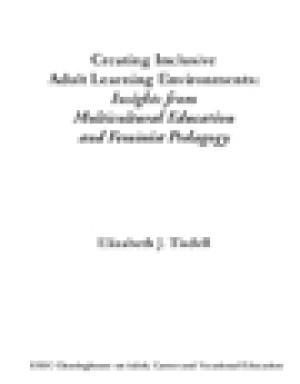
Adult educators are increasingly faced with the task of creating and facilitating learning activities for participants from diverse backgrounds. They need to take into account the needs of both male and female learners, learners of different ethnic and racial groups, and learners from different social backgrounds in creating an inclusive adult learning environment. The developing body of literature on multicultural concerns in adult education, on feminist theory and on critical and feminist pedagogies offer some insights in this regard. This publication aims to: (1) synthesise some of the work related to inclusivity and diversity that has already been done in the field of adult education; and (2) examine aspects of the wider literature base on multicultural education and feminist theory and pedagogy that can offer insights specifically for creating inclusive adult learning environments. (From the Publisher)